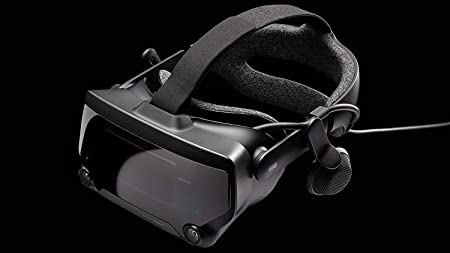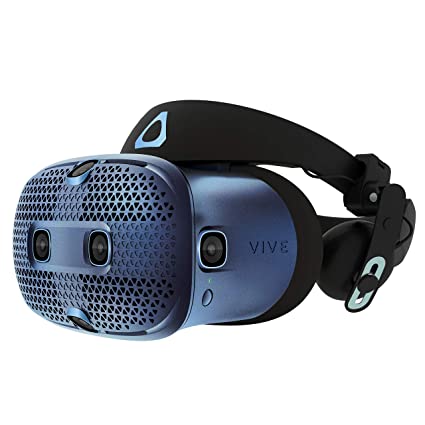Valve Index vs HTC VIVE Cosmos
When you compare the Valve Index to the HTC VIVE Cosmos you can see which VR Headset is better. Let's take a look of the comparison, and see which model of VR Headset out ontop.
What VR Headset is better?
The Valve Index and HTC VIVE Cosmos are two of the top VR headsets on the market. Both offer a great level of immersion with their room scale, 360 tracking capabilities and high refresh rates. When comparing these two devices, it's important to consider the various features and specifications that set them apart.
To begin, let’s look at their field of view; The Valve Index boasts 130° while the HTC VIVE Cosmos offers 110°. This is definitely a pro for the Valve Index as its larger field of view gives users an improved sense of depth perception and spatial awareness when in virtual environments. On the other hand, this feature might be considered a con for some users who don't require such a wide range of vision or may suffer from motion sickness because of it.
In terms of resolution, both products offer impressive numbers with 1440 × 1600 px for the Valve Index and 2880 × 1700 px for HTC VIVE Cosmos – making this aspect an even tie between them. Each headset also requires different minimum graphics settings; The Valve Index needs Nvidia GeForce GTX 970 / AMD RX480 while The HTC VIVE Cosmos requires only Integrated Graphics Cards so this could be seen as an advantage to those looking to save money on hardware upgrades or those simply looking for less powerful PC specs which still allow you to experience quality VR visuals.
Finally, we can compare their refresh rates; The Valve Index has a higher rate than that offered by HTC VIVE Cosmos – 120 Hz compared to 90 Hz respectively - providing smoother graphics and sharper image clarity which could make all the difference when it comes to immersive gaming experiences such as racing simulators or first-person shooters.
Ultimately, it all depends on personal preference but after using both headsets myself I found myself leaning more towards the Valve Index due to its increased range of vision and superior refresh rate capabilities. While its slightly more demanding graphics requirements could be off-putting to some users (especially those working with lower end PCs), I believe that it is well worth investing in since these features provide an overall better virtual reality experience than what’s offered by its competitor..
Specs comparison between the two VR Headsets
| Valve Index | HTC VIVE Cosmos | |
|---|---|---|
| Overview | ||
| Brand | Valve | HTC |
| Model Name | Index | VIVE Cosmos |
| Release Date | 2019 | 2010 |
| Country of Origin | United States | Taiwan |
| Category | PC VR | PC VR |
| Battery Life | 7 h | |
| Display | ||
| Field of View | 130° | 110° |
| Resolution | 1440 × 1600 px | 2880 × 1700 px |
| Refresh Rate | 120 Hz | 90 Hz |
| Display Type | LCD | LCD |
| Minimum Requirements | ||
| Min. Graphics Required | Nvidia GeForce GTX 970 / AMD RX480 | |
| Min. RAM Required | 8 GB | |
| Operating Systems | Microsoft Windows | |
| Sizing | ||
| Weight | 809 g | |
| Dimensions | 609.6 x 431.8 x 228.6 mm | |
| Features | ||
| Room Scale? | YES | YES |
| 360 Tracking? | YES | YES |
| Positional Tracking? | YES | YES |
| Front Camera? | YES | YES |
| Eye Tracking? | No | |
| Usable with Glasses? | YES | |
| Cooling System | YES | YES |
| Built in Headphones? | YES | |
| Built in Microphone? | YES | |
| Flip Visor? | YES | YES |
| Voice Command? | No | |
| IPD Adjustment? | YES | YES |
| Lens to Eye Adjustment? | YES | YES |
| USB? | YES | |
| MicroUSB? | No | |
| Display Port? | No | |
| Mini Display Port? | No | |
| HDMI? | No | |
| MicroSD? | No | |
| Bluetooth? | YES | |
| Wifi? | No | |

